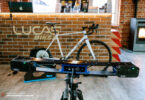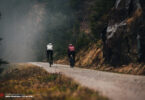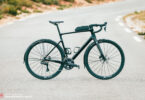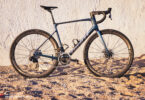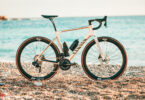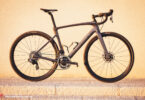Transcontinental Race – 300 start, 135 finish
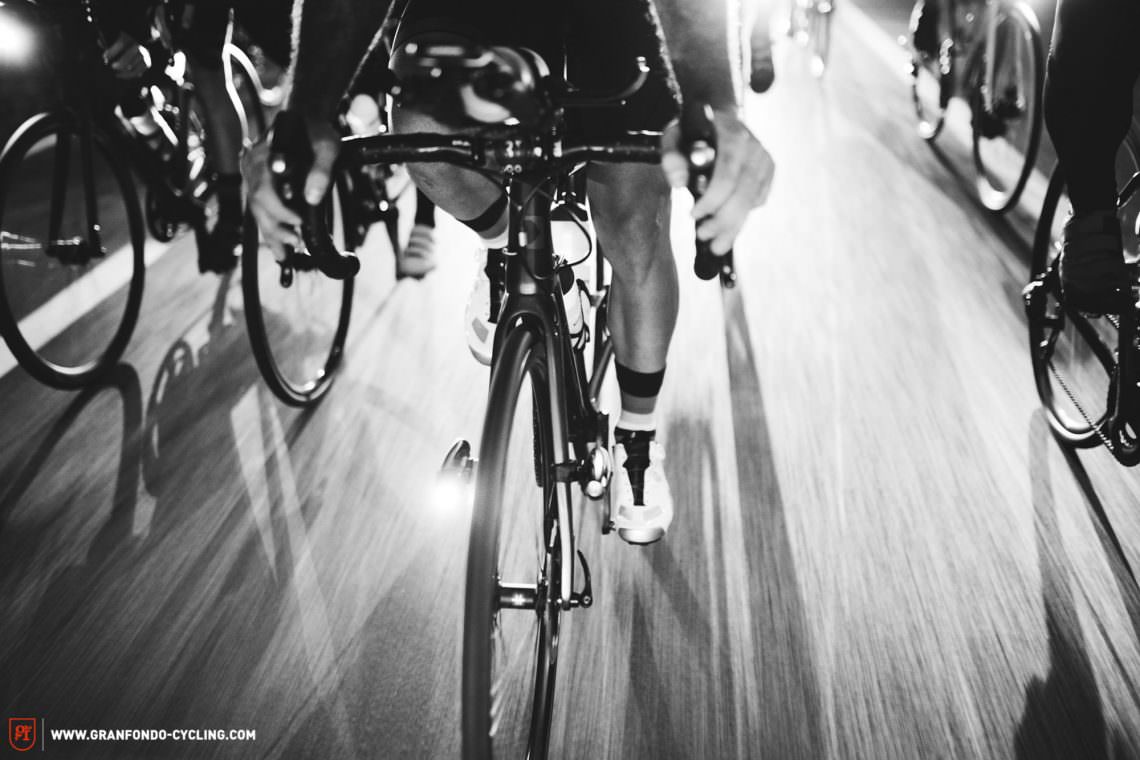
Thirteen days, nineteen hours and 25 minutes – a sequence of days, hours and minutes that Ingeborg Dybdal Øie will remember forever. It’s hard to forget the Transcontinental Race.
Journeying 4000 km across a continent on two wheels powered by your own strength and willpower is an adventure that mentally stays with you. The Transcontinental Race is one of the more renowned long distance pilgrimages of the endurance cycling world, but nevertheless is still shrouded in mystique to the many a mere mortals amongst us. You think you have what it takes?
When trying to piece together the Transcontinental Race (TCR), the mind fumbles for a minute, frantically piecing together how much mental and physical well being you have to give to accomplish such an endeavour: “You think about it, and think why, and then realise the appeal of it is that it’s a challenge you don’t know if you can complete” Ingeborg tries to give rationale behind what was her decision making process. And she’s right, the attrition rate on this race is high. Of the 300 starters this year, only 135 actually finished; some were still out there a month after the start gun had blasted. There are very few races where over half of the participants are unable to finish. Participants blighted by a myriad of reasons – unfixable bikes, unfixable bodies, unfixable minds.
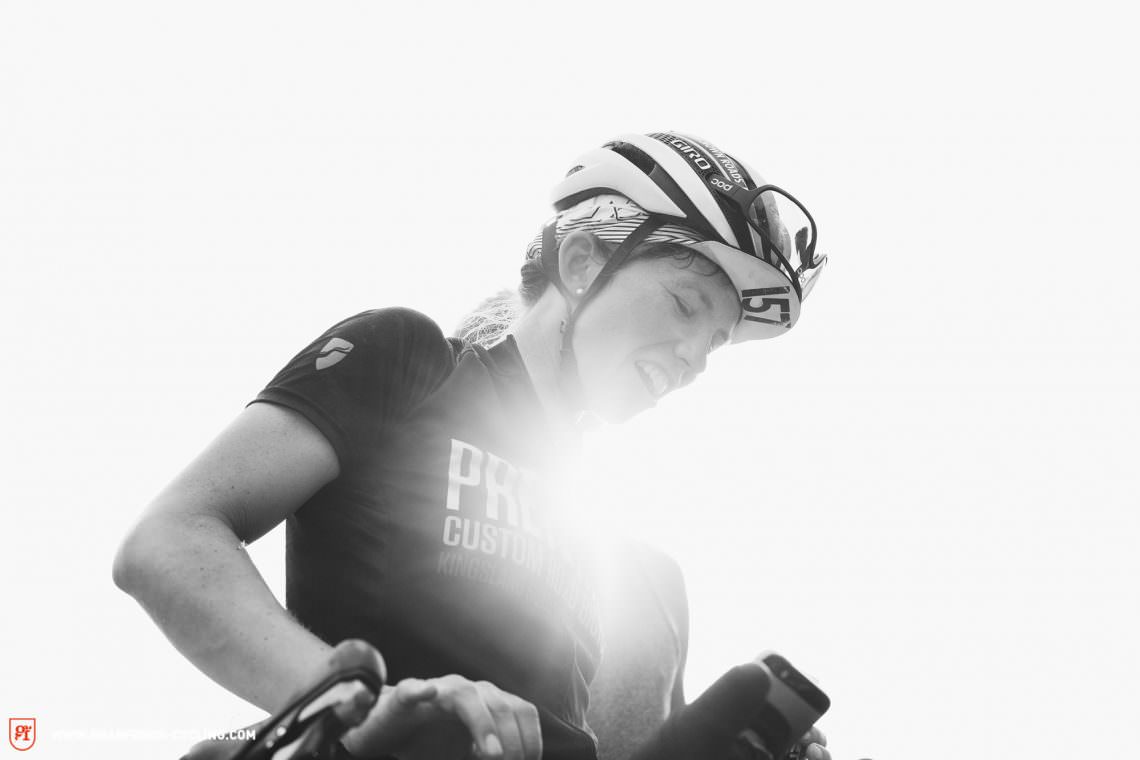
The first edition of the TCR was 5 years ago, its founder was Mike Hall, a salt of the Earth character who embodied the soul of endurance cycling. Unfortunately whilst competing in the Indian Pacific Wheel Race earlier this year, Mike suffered a fatal collision with a car. A tragic loss to not only his family and friends, but the endurance cycling world and the wider cycling community. After much deliberation by the TCR team, agreement was made that TCR number 5 should continue, that Mike wouldn’t have wanted it any other way.
Starting in Geraardsbergen, Belgium on Friday 28th July at 22:00 CET the riders, for this edition, are tasked with cycling self-supported to Meteora, Greece, passing 4 control checkpoints in Germany, Italy, Slovakia and Romania. The rules are liberatingly simple – whoever makes it to Meteora first wins. “At the sharp end it is a beautifully hard bicycle race, simple in design but complex in execution. Factors of self reliance, logistics, navigation and judgement burden racers’ minds as well as their physiques” is how the TCR website eloquently describes it.
It suddenly becomes real, how vulnerable you can be as a cyclist and the fact that you’re going to be out there for days and nights…
Unfortunately tragedy’s dark mist descended upon the race within the first 24 hours – rider, Frank Simons suffered a fatal collision with a car: “It suddenly becomes real, how vulnerable you can be as a cyclist and the fact that you’re going to be out there for days and nights doing a race, and you think to yourself, is it really worth it?” Ingeborg responds to the question she knew was bound to be asked.
A confrontation with mortality quite often leaves us feeling fragile; people quickly adopt different mindsets. Ingeborg explains, whilst some competitors completely withdrew from the race, others stopped racing it, employing a more sedate pace to what they’d originally planned. “I definitely did, I’d had a bit of a close call on the first night in terms of falling asleep on the bike. I hit the gravel on the side of the road but obviously woke up in time for nothing to happen but still, it gives you a shock” Ingeborg says with a look that’s interpreted as – it could have been any one of us.

With re-assurance from Frank’s family the race continued, with the TCR team not only fearing for rider safety but also having to deal with their own emotional rawness of the loss of their leader.
“It feels a bit selfish to just think, well I’m here in a bike race and I’m just going to keep on riding when something like that happens” Ingeborg describes the mixed emotions that fell heavily into the already saturated headspace of her and her fellow participants. Whilst on the go riders chose to change routes, opting to take more cycle friendly ones over what they had previously planned.
That’s the beauty of the TCR, it’s not set in stone, routes can be changed, how to ride is defined by the rider. Plans can be laid down, but being flexible is the key to durability and success. Flexibility can also be quite easily deployed when you’ve only planned the route the weekend before you leave, Ingeborg confesses: “I decided not to ride the group ride with my cycling club, Pretorius Bikes, on the Saturday before the race started, and went to the club cafe meeting place and planned the route”.
Although Ingeborg does advise to visit some of the areas you plan to ride through beforehand. Not only is it great for training but it gives you a taster for what’s to come: “All sorts of shit happened” she laughs. Whilst doing the recce her and her friend had to overcome eight punctures with only 2 spare tubes, 3 slashed tires and rim tape that disintegrated and came off – all hard but invaluable lessons for the real thing. But luckily when it came to showdown, Ingeborg managed to cycle 4000km and only rack up a mightily impressive 2 punctures, that’s right, 2! If Lady Luck isn’t on your side it can be a deal breaker.
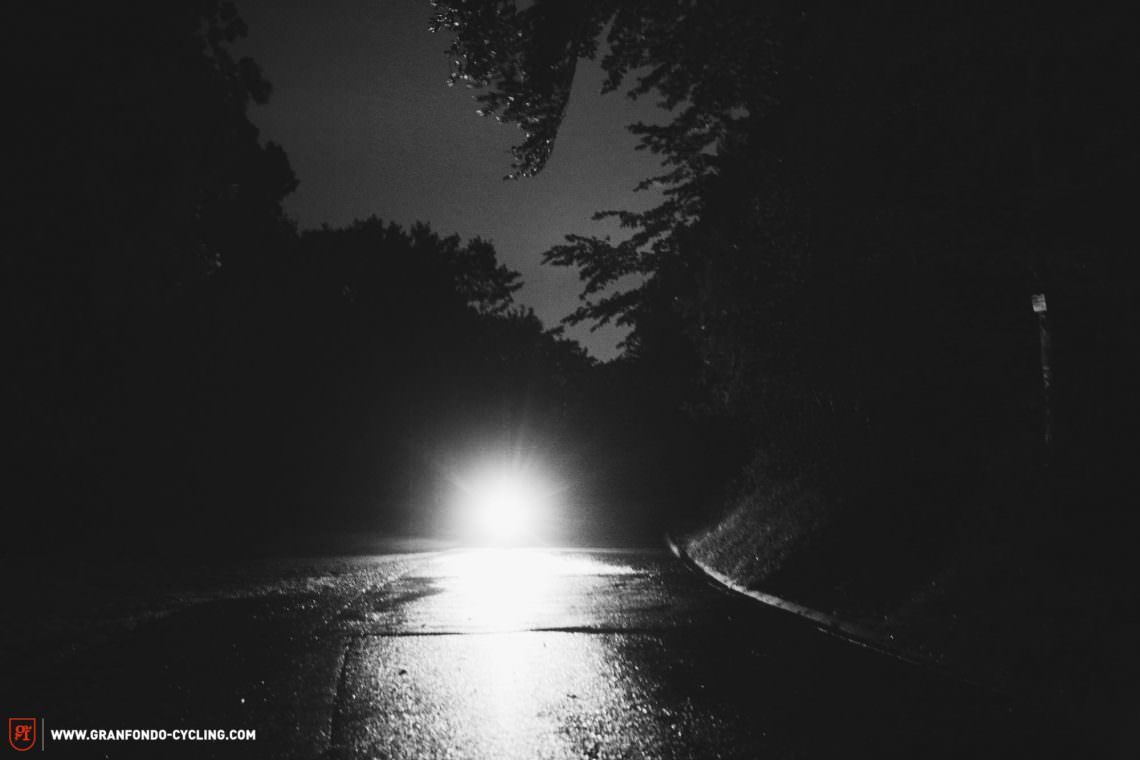
Punctures, mechanicals and traffic are emotionally and physically draining. Ingeborg recounts a fellow competitor’s puncture turmoil, of him rolling into the finish after suffering multiple punctures and running out of patches: “On the last steep climb he came up, he kept stopping and pumping up his tire, but this pumping up the tire doesn’t really work for on a 10km descent. So he stuffed all the broken inner tubes into the tire, and with the 4 inner tubes inside and cable ties precariously holding it all in place he rolled down half on his rim to the finish.”
Tenacity, evidently is another great characteristic to have. Roads can be friend or foe and the two can interchange in the bat of an eyelid. Roads with bad surfaces and bad drivers can reform themselves into concrete viewing platforms to some of the world’s finest landscapes. Vistas that draw out that warm fuzzy feeling from within, and reassure you there is a reason to this personal challenge setting madness. Preparing to spend, what is for most people, an abnormal amount of time solitary can also be a grind, especially when requesting every morsel of your body to concentrate on keeping your eyes from closing.
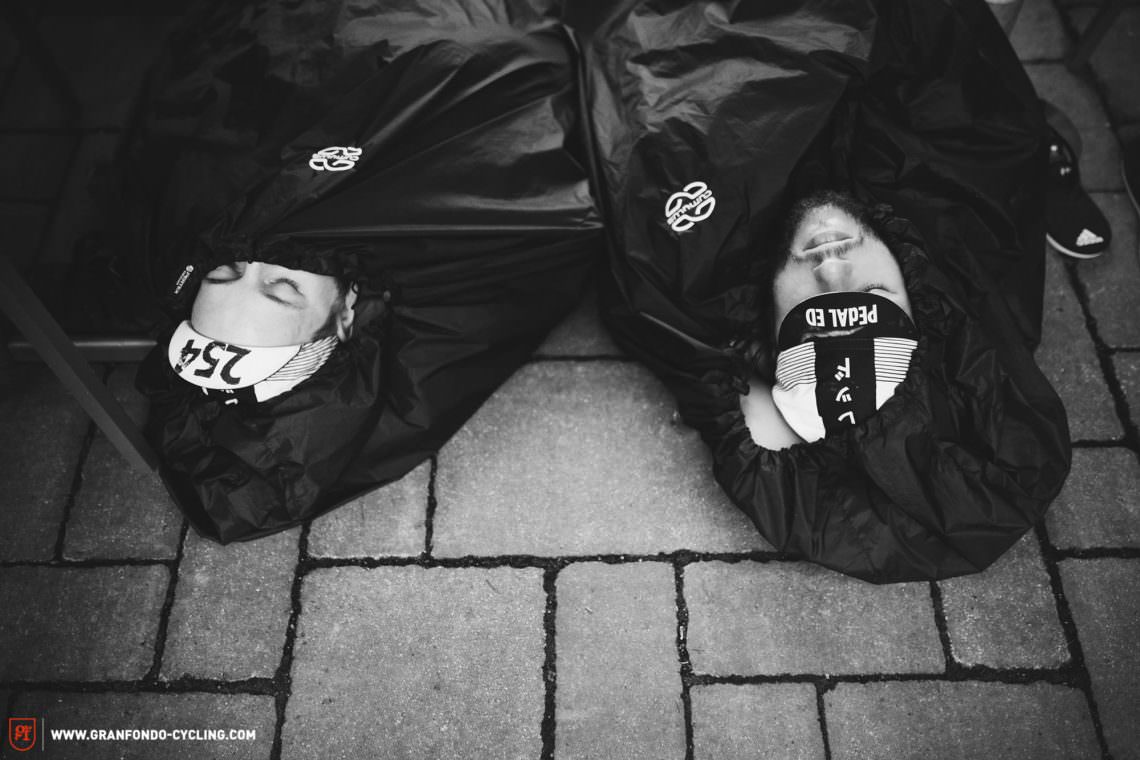
But, there seem to be many tricks to call upon when sparring with exhaustion and sleep deprivation. Apart from obviously stopping and resting, singing, music and the use of a global phone directory were all a part of Ingeborg’s sleep resisting weaponry: “I have friends in the US and other places around the world who at 3am European time would still be awake. I would call them to just talk to people when I was feeling tired late at night”.
Then after 12 days on the road her friend and also bike maker, Jean Pretorius, texts her: “Ingeborg, you’re currently second female”. Met with disbelief she explains how she tries to play it down, put it out of her mind and carry on, business as usual: “I hadn’t actually seen anyone the whole race. I arrived into Macedonia and realised I didn’t have any cash and it was really hot and I didn’t have enough to drink, so I went off into a village to find something. It was so hot I sat down and had something to eat in the shade, then all of a sudden she [the female competitor behind Ingeborg] cruises past and I thought to myself – I guess I was 2nd female then!”
Over the last 24 hours she had planned to cover a whooping 600 km, or by this point with current tie for second place we should say – race the last 600 km. For the first time during the race Ingeborg fired up the TCR rider tracker, and as both her and fellow competitor, Karen Tostee, crossed over into Greece neck and neck, it was a nail biting finish that saw Ingeborg edge ahead and grasp second place by just 2 hours: “We both made big blunders on our routes into the finish, but in the end my route was just that bit shorter. The day was so hot, Jean was messaging me saying you’re number two and I was saying – it’s so hot I don’t think it’s safe to cycle”.
You think about it, and think why, an then realise the appeal of it is that it’s a challenge you don’t know if you can complete.
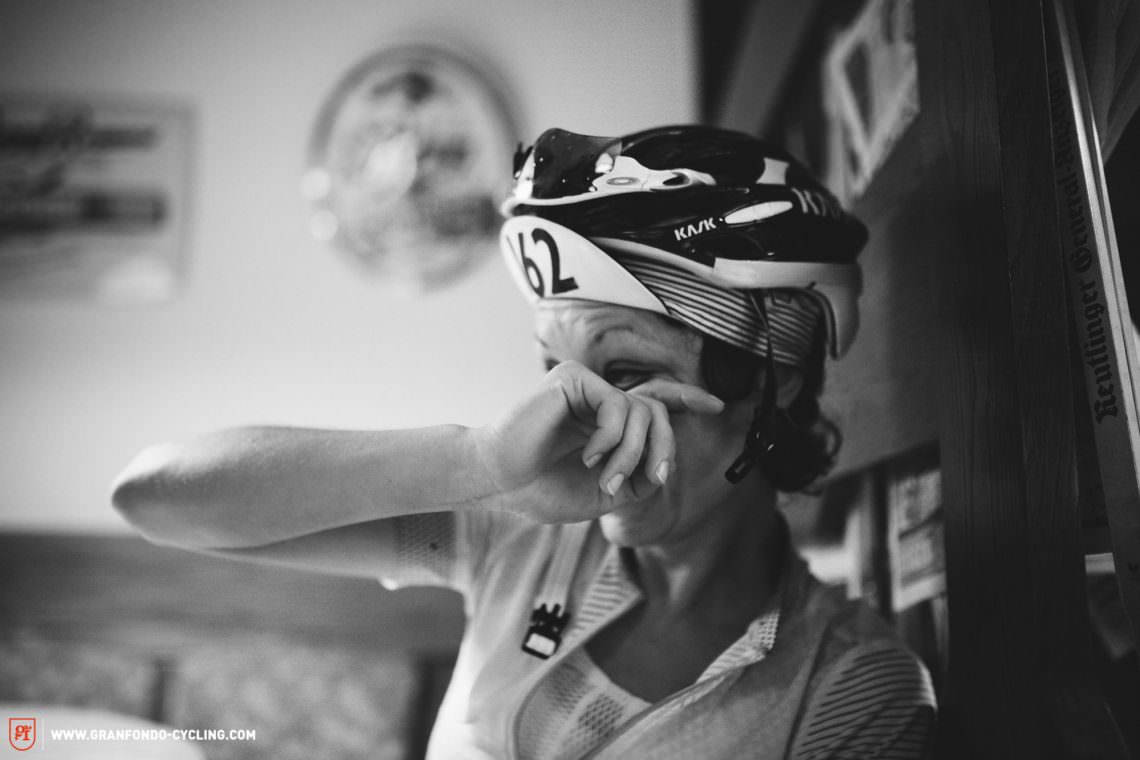
It’s clear to see by Ingeborg’s face that the memory of this is still crystal clear, not enough time has passed yet for the mind to sugar coat the suffering. When asked what’s next, there’s a sigh, it’s too early. Her body still not fully recovered both physically and mentally from the enormous effort, it’s visible Ingeborg doesn’t have the energy yet to allow her mind to wander and contemplate the next challenge.
But after a few seconds pause – Ingeborg responds: “It doesn’t have to be a race, sometimes setting your own challenge can be equally as exciting. For example, just to cycle for a weekend and see how far you get.”
Threading your way across a continent, experiencing emotional and physical highs and lows, energy levels in constant flux, ebbing and flowing from total exhaustion to sugar induced highs. This parallel universe, one that encapsulated Ingeborg over 13 days, 19 hours and 25 minutes stopped as abruptly as it started – then it’s back to her everyday life, it’s back to being – Ingeborg, Head of Investor Relations at the medical technology company where she works: “I guess everyone from work didn’t really understand what I had done, they just thought that I had been on holiday and done a bike ride as usual.”
A few weeks later after the first time we met we exchange text messages. This time when asked: “So what next?” she’s obviously recuperated enough to give a response. Ideas for her next challenge have started to oscillate. Her messages seem to convey the ideas bubbling away in her head, there’s talk of a 7000 km race on the horizon for 2018. She finishes by typing: The mind is so fickle – all the unpleasant memories fade away and the great memories are amplified. Reading her message you start to feel your own gaze soften, your brain settles into contemplation mode and you start asking yourself – would it be possible?
Your mind defines your limit.
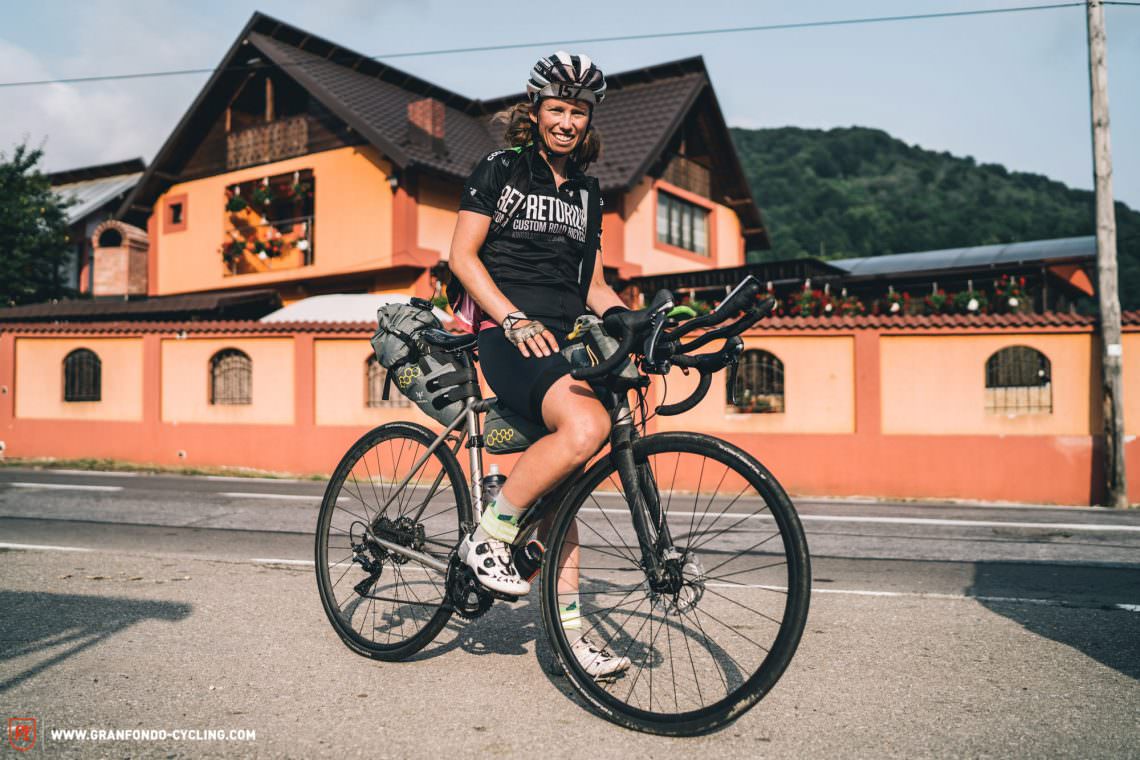
For information visit Transcontinental
Did you enjoy this article? If so, we would be stoked if you decide to support us with a monthly contribution. By becoming a supporter of GRAN FONDO, you will help secure a sustainable future for high-quality cycling journalism. Click here to learn more.
Words: Photos: Apidura, Tom Skipp, James Robertson

